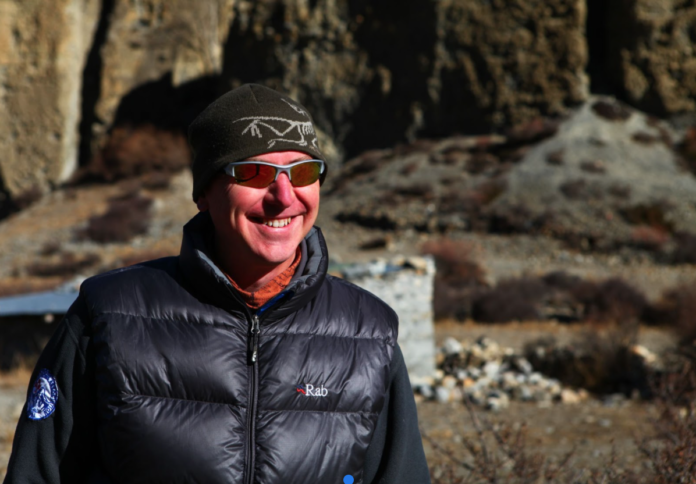Many doctors live their childhood dream of seeing themselves in white coats, serving humanity with their clinical skills and knowledge. Dr. Ian Quigley had a different start. He wanted to be a pharmacist but his interest in chemistry got him into trouble and the punishment led him to medicine.
Meeting a medical student during detention
At the age of 16, Dr. Ian Quigley had planned to work in a pharmacy to gain experience. That didn’t happen. His school teachers caught him mixing dangerous chemicals to make homemade fireworks. Making explosives might have seemed like a good idea to a naughty kid but the teachers were not impressed. The school cancelled Ian’s attachment to the pharmacy to stop him from getting hold of more chemicals. Instead, as a punishment, he was made to work in the school garden.
“You can imagine if you are caught at school trying to make explosives the school does not like it very much.”
Dr. Ian Quigley
While picking weeds in garden he met a medical student who was working there to earn money over the summer. As they weeded they talked. They talked about many things but especially about medicine. The student’s description of the challenges of clinical practice lit a different kind of spark. Ian realized he could combine his love for science with serving humanity by becoming a doctor! In that garden, among the weeds, Ian’s life started to grow in a new direction.
Voluntary services for rescue organizations
Today, Dr. Quigley holds 26 years of experience being a general practitioner. He also delivers teaching services to medical students. All the duties and responsibilities make him a very busy person. Most of the responsibilities are fun yet many are just part of the job. He maintains a balance in his job to prevent burnout.

Even after 26 years of practice, Dr. Quigley remains passionate about his work. He keeps the spark alive by working voluntarily for rescue organizations that track and treat locals and tourists high in the mountains.
Moments of accomplishment and gratitude
Unlike other doctors, Dr. Quigley’s medical life didn’t take off with a childhood dream coming true but like all doctors, Dr. Ian Quigley has moments of accomplishment and gratitude in his professional life. Apparently, the moment seems quite small and insignificant but actually, they mean a lot.
“Four to five years ago, a patient collapsed and had a cardiac arrest. We were able to resuscitate him by doing CPR and then defibrillating him. Within a few seconds, he was back alive. That was a wonderful moment.”
Dr. Ian Quigley
It is not necessary to derive a passionate moment out of a dramatic event. Many times a routine checkup and diagnosis of a patient leave a worthy winning moment. Such moments are not only for young doctors but experienced doctors like Dr. Quigley win such moments too.
“A couple of months ago, a lady came to me who had a specific tremor in hand. The tremor was typical of Parkinson’s Disease. By listening to her history and by examining her I was able to identify she had Parkinson’s Disease, without doing any blood tests or MRI scans. I started her medications and within a few months, she felt much better. According to me, that is very rewarding.”
Dr. Ian Quigley
Family, gym and guitar – The formula to manage stress
Dr. Quigley has interesting personal engagements. Professional moments are significant but he equally cherishes his personal life. When he is not working he spends quality time sharing the beautiful moments with his wife, sons and dog. He is good at playing the guitar which gives him space for himself. Moreover, Dr. Quigley is concerned about his health and fitness so he often spends time at the gym and running on tracks.
“These are the things which keep me sane.”
Dr. Ian Quigley

In times of COVID-19, medical consultations switched to mobile phones. Dr. Quigley believes in being face-to-face with the patient. In physical consultations, a patient expects and needs touch.
“Patients need to be seen face-to-face and they need to be touched.”
Dr. Ian Quigley
Being a successful and experienced general practitioner does not mean they don’t deal with stress. Work often brings stress and crisis. Dr. Quigley manages his work stress by sharing it with his wife who is a nurse. Dr. Quigley appreciates her understanding of stressful matters which affect a doctor’s efficiency. He works with 6 partners and together they manage a way out of a stressful situation at work.
Understanding the value of a doctor’s touch
In April 2020, when the first wave of COVID-19 was in full swing Dr. Quigley worked in a COVID-19 clinic. In those times, touching someone was out of the question. Social distancing was a real thing.
“A lady came to the clinic with some symptoms. She had lost her husband 3 weeks ago. It was the time when we stayed at home, couldn’t go out and meet our families. She told me about her symptoms and her husband’s death. She was crying a bit. I reached out and held her hand. She cried a bit more. She smiled at me and said ‘You are the first person to touch me since my husband died.’ That touch was very important to her.”
Dr. Ian Quigley
Dr. Quigley appreciates the privilege of touching the patients. A doctor’s touch is different. It holds understanding, peace and calmness.
“One important thing about doctors is that we are given the privilege to talk to people and also to touch them. We use our hands in a way other people don’t. I think that is something we need to remember.”
Dr. Ian Quigley




